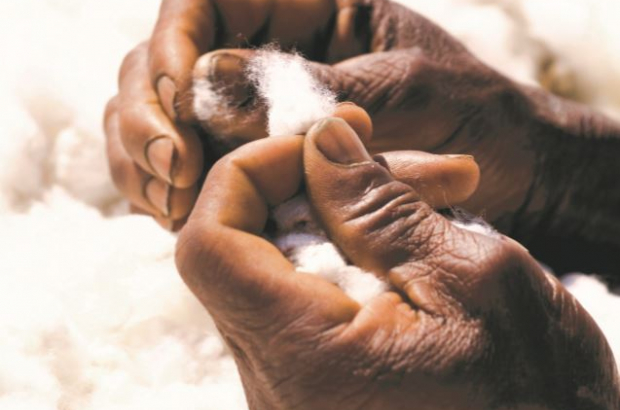- Daily & Weekly newsletters
- Buy & download The Bulletin
- Comment on our articles
Ethical shopping in Belgium: How to do your bit for the environment and society
“I cannot live with the idea that for a dirt-cheap product, someone else is actually paying the price. I know it’s not possible to produce a t-shirt for €4.99,” says Sietske van Poelgeest, a teacher and mother of two. “Foodwise, I try to eat seasonal and locally grown vegetables,” she says, adding “I do what I can and what I think is right.”
Van Poelgeest, from the Netherlands, is one of a growing number of people living in Belgium who are attempting to shop more consciously, taking into account the environmental impact of their shopping choices and the social impact on the people who produced it. And as the number of such ethical shoppers is increasing, so are the stores willing to cater to them.
In 2017, Fairtrade Belgium said it saw a growth in all product markets, with 69% of Belgian households buying fair trade products. That compares with just 24% 10 years ago. Once the preserve of small, niche shops, multinationals are now launching sustainable products and schemes such as fast fashion retailer H&M’s clothes recycling and its Fair Living Wage programme.
“Our world is increasingly unequal and unfair. We can proactively tackle this trend and play our part in bringing a bit more balance through how we live our lives, and especially what we buy,” says Charles Snoeck from Fairtrade Belgium.
Environmental campaigner Jeroen Verhoeven from Greenpeace Belgium says: “It’s always important to note that the responsibility is not on the consumer but also on the companies and the marketing side. But it’s a whole system in which people are of course important, as is the individual’s behaviour. With so many people on the planet, we are each having more and more of an effect.”
An obvious question is how ethical and effective some of these schemes are, and how we can be sure we’re really making a difference with what we buy – and not just further lining the pockets of corporate executives. There’s also so much confusing information. One minute, plastic bags are the scourge of the planet, the next minute we hear that cotton crops are devastating in terms of water use and pesticides. Dairy is bad; plant-based alternatives like almond milk require vast amounts of water per litre.
Choose quality
For environmental campaigners, there are question marks over these recycling schemes. Verhoeven explains: “There is a hierarchy: reduce, reuse, recycle. Recycling is not a business model. Although it does help to ease consumers’ conscience about buying so much.” His advice for ethical shoppers is to choose high-quality, sustainable materials and to look for second-hand clothes.
If we start looking at the provenance of what we buy, we have to ask whether we should shun fast fashion outlets whose clothes are produced in countries with abominably low wages, or whether by doing so we are putting their workers out of a job. In the case of H&M’s Fair Living Wage programme, Fairtrade Belgium said it welcomed such schemes by big players. “With their dominant position in the markets, not only do they have the power to have impact on scale, changing the lives of thousands of workers, through their action they can also inspire and stimulate whole sectors to change,” says Snoeck.
His advice for confused consumers is to check the labels, including fair trade, which is proof that a product meets internationally agreed standards and is independently certified. “While it’s true that a wide variety of labels can generate some confusion, labels exist to help us make sustainable choices.” A good guide can be found at Label Info, an independent platform that explains (in French and Dutch) what 98 different labels used on products to indicate that they are organic, sustainably produced or chemical-free really mean.
Van Poelgeest says it’s difficult to orient herself with so many messages out there about what we should and shouldn’t buy, but concludes: “In the end I believe that if everyone does their bit, we end up with a better world. So I do make a difference. If I buy a T-shirt made by a tailor in Nepal, for example, who is paid a fair wage and works under good circumstances and uses organic cotton, I am happy.”
Useful addresses
Label Info
An independent platform offering an overview and explanation of ethical labels and what they really mean.
Hempmade
A clothing and accessories store in Leuven where all products are made and priced according to fair trade and sustainability.
Green Jump
A Dutch online retailer of ecofriendly household products. Delivers to Belgium.
Ekoplaza
Organic online food and household goods store.
Les Choux Verts
Parent and baby shop in Brussels, selling natural products and sustainable clothing.
Juttu
Sustainable and fair trade clothing, interior design and food. Stores in Ghent, Roeselare, Bruges, Brussels and Antwerp
This article first appeared in The Bulletin winter 2018


















Comments
just remember this: often times the situations that 3rd world people have is very difficult, but the alternative is hunger and death.....
"I know it’s not possible to produce a t-shirt for €4.99."
Yes, it is. If they sell it to you at that price, it's because it costs much less to make, and they still make a handsome profit on it.